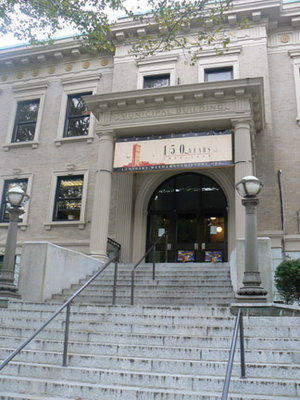A recent property tax increase in the township has some residents demanding substantive answers. Citing reductions in school and municipal state aid of over $3.5 million, township officials have asked residents – in a written statement sent to homeowners in September – for their cooperation and understanding in a “difficult budget year.”
The 2.7 per cent property tax increase in the third and fourth quarters was necessary, officials said, after the state specifically cut the Regional Efficiency Aid Program (REAP), a tax credit given to taxpayers in municipalities that share services with surrounding towns. The credit has given the average Weehawken homeowner an annual $250 tax credit for the past 10 years, ever since the North Hudson Regional Fire and Rescue was formed in 2000.
“After we found out about the loss of [REAP] in June, we had to make sure the municipal portion of the property tax didn’t go any higher,” said Weehawken Mayor Richard Turner.
“It feels like we’re getting hit every which way from Sunday.” – Martin Shapiro
________
Residents want answers
But some citizens, like retired businessman Martin Shapiro, want officials to publically explain what has specifically been done. He suggested cuts in employee salaries could have at least softened the impact on taxpayers.
“The last thing any municipality should be doing in this economy is raising taxes,” he said.
Shapiro acknowledged the sharp reduction in state aid, but said he still confronted Weehawken officials, like Township Manager Jim Marchetti, demanding a response.
“I asked him why he wouldn’t cut expenses or employee salaries like a private company would do,” Shapiro said. “Governments have to start behaving like businesses.”
According to Shapiro, township officials indicated they had already made the necessary cuts to the budget but still needed to raise taxes.
Still, Shapiro asked, “If you’re getting ‘X’ amount of dollars less from the state this year, what have you done since sometime after January to decrease spending?”
The township responds
The mayor said that after the cuts to state aid by Gov. Christopher Christie, the council began work on a projected $36.4 million budget for the next fiscal year, a decrease in spending of $2 million from last year.
“We may lose as much as a million more from the state before this is over,” he said. “We just don’t know until we receive the state aid figures, hopefully by the end of the year. We’re just saving across the board in anticipation of further state aid reductions.”
Turner said a wage freeze, which maintains the current salary of township employees, was implemented two years ago – when the mayor said the township first “saw the writing on the wall” – and remains in place to this day. Non-union workers’ salaries have not increased in two years; while, union workers have been under the pay freeze for one year.
“The union contracts expired June 30,” Turner said. “We’re negotiating new contracts, but we made it clear that our hands are tied.”
In addition, a hiring freeze took effect some 18 months ago. By not hiring any new employees after positions were voluntarily vacated, the township has decreased staff by 25 per cent, or 29 individual positions, including five police officers, Turner said.
A cap on township employee overtime was also implemented banning overtime that isn’t personally approved by township manager Jim Marchetti. And close to 100 young adults weren’t hired by the summer recreation department programs.
Being a transportation hub, with over 107,000 vehicles going in and out of the Lincoln Tunnel everyday, two light rail stops and two ferry terminals, Turner said the township has worked hard to do more with less.
“We have cut this year’s budget by $2 million,” the mayor said. “That is what we have been doing since January.”
Senior property tax-freeze
In addition to the letter and tax information, the township also mailed information about New Jersey’s Senior Property Tax Reimbursement Program, or Senior Freeze. The program allows seniors to lock in a property tax rate and continue to pay that rate year after year.
“There is a very high number of retired people in Weehawken, literally hundreds of homeowners that are covered under the program,” Turner said.
Although residents like Shapiro feel undeserving of a tax hike, the township maintains everything has been done to help homeowners while “still maintaining essential services.”
“How many police officers do I let retire, before crime goes up?” the mayor said. “How many DPW workers do I let go, before the township deteriorates? It all adds up to the quality of life of the community.”
The mayor added that Weehawken is often regarded as having one of the best school systems in the state, which often leads to higher property values for homeowners.
“A good school system attracts people to the community and adds to the value of township property,” he said. “Our property taxes are critical and go to good use.”
‘Extreme economic conditions’
In bold and capital letters at the bottom of the letter, the township asked anyone who is facing “extreme economic conditions” to contact the mayor’s office for help in applying for a number of assistance programs, including the senior property tax freeze, that are available to eligible Weehawken residents.
“We have experts to help them fill out the applications,” Turner said.
Residents with questions about the tax increase, or to find out about assistance programs, should contact the mayor’s office at (201) 319-6006.
Sean Allocca can be reached at editorial@hudsonreporter.com
